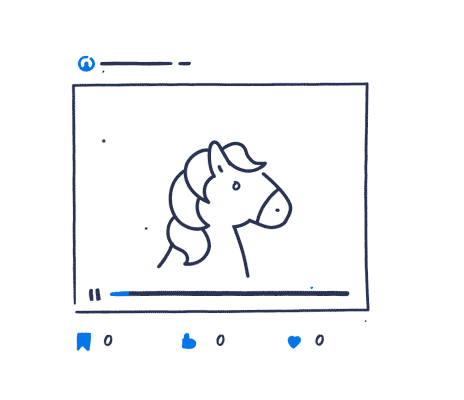The Notebook
on Animation
Hard-earned insights from our notebook
about animation and explainer videos.
Hands-on, honest and condensed.
Movement follows story
Explainer videos can often present an overwhelming visual experience, with a range of different elements fighting for the viewer’s attention. To combat this, focus only on movement that aligns with the story being told. Take the time to determine which movements are vital for advancing the narrative and effectively conveying the message. Next, identify any redundant movements that don't contribute significantly and consider eliminating or simplifying them. By aligning movement with the story, you can create a more focused and impactful animation.
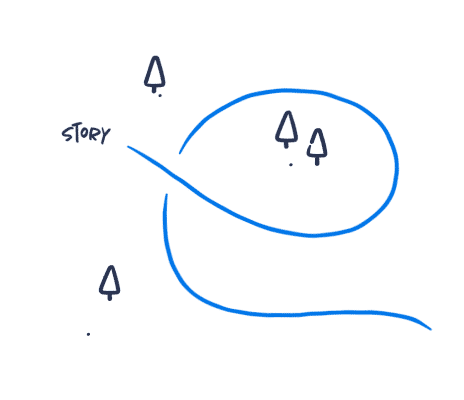
Hire a good copywriter or become one
The importance of good copywriting cannot be overstated. Your script should be sharp, catchy, inspiring, and persuasive. This requires both expertise and experience in copywriting for animation. A good animation script isn’t just a collection of sentences; it’s a narrative. Copywriters can build a compelling story that keeps viewers engaged. Moreover, experienced copywriters understand how words and visuals work together. They ensure the script flows smoothly, with logical transitions and a clear progression of ideas. They can write scripts that complement the animation’s visuals, enhancing the overall impact.
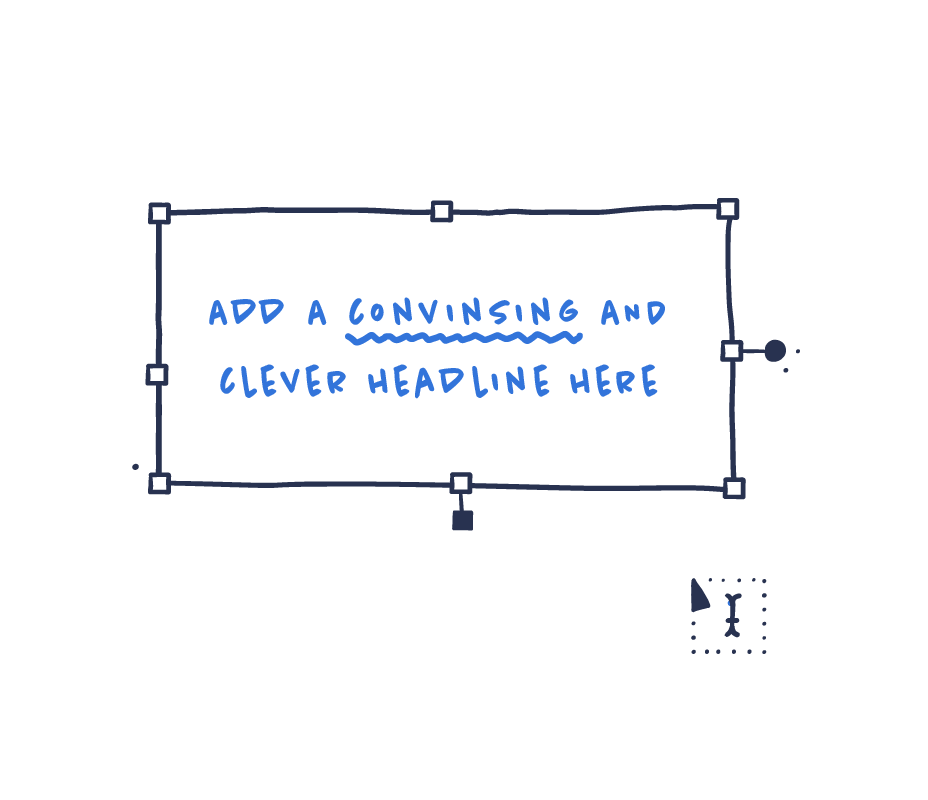
Prioritise your content
Before starting any animation project, take a step back and focus on the overview of your content. What is essential, what is important, what is less important – and what information should simply be left out? Making these choices requires a deep understanding of the story you’re trying to tell. It is always easier to include than exclude. But only by prioritising your content analytically will you be able to select the right key components for your video.

Balance appeal and clarity
Your explainer video should be concise and easily comprehensible. However, it’s equally important to ensure that your visuals are captivating, intriguing, and emotive. Clarity and aesthetics are not mutually exclusive. But it’s worth noting that an emphasis on clarity may sometimes compromise appeal, and vice versa. Your job is to strike the right balance between the two to make explainer videos that are truly engaging as well as concise.
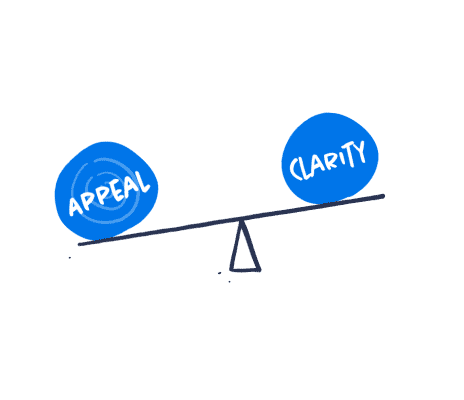
Revisit the script
The voice-over and visuals need to work hand in hand and cannot be viewed as separate entities. Collaboration between the copywriter and storyboarder is essential to make it work. It’s an ever-evolving process where pictures influence words and words influence pictures. Revisiting the script and continuously refining the relationship between design and writing is crucial for creating a cohesive and impactful explainer video.
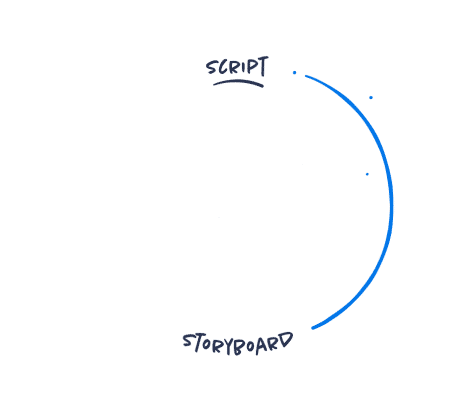
Don’t skip the animatic
Animatics are like a blueprint for your project. They can reveal what works and what doesn’t, giving you a first impression of what your final product will be like. Even in low-budget projects, animatics are a good investment. In most cases, creating an animatic will not cost you time but will ultimately save you time – and, more importantly, it will also improve the quality of the entire piece.
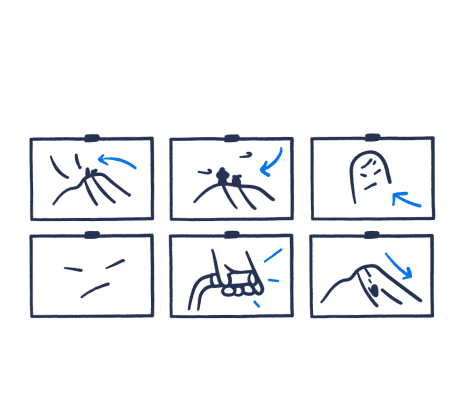
Use figurative language with caution
Figurative language can be problematic in scripts, as it can dictate and limit the visualization. Instead, use simple, straightforward, and descriptive language, allowing for more open visual interpretation in the storyboard. Be extra careful with figurative language clichés. Clichés, due to their overuse, lose their power and become weak and ineffective. We’ve heard it all before.
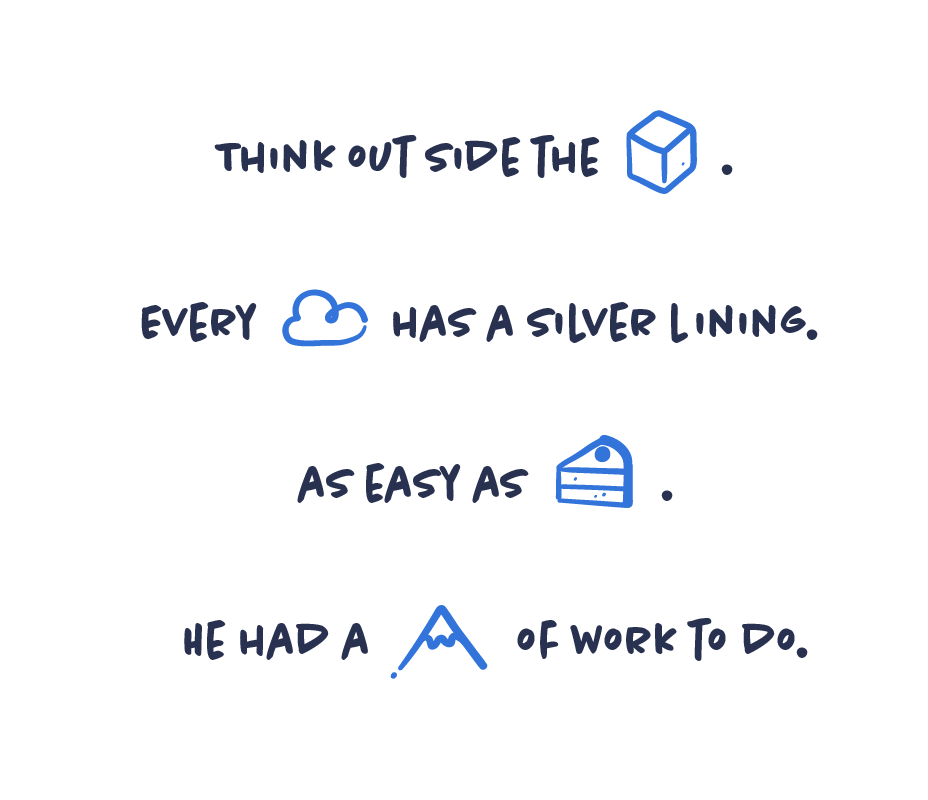
Sound should emphasise the story
Sound plays a crucial role in animation, going far beyond simply adding background noise. It’s a powerful tool for strategically emphasising the story, key points, and actions within the video.
Precisely timed sound effects can emphasize actions, making them feel more impactful, and direct the audience’s focus to important details or events on screen. For example, a subtle ‘ding’ for important information or a ‘swoosh’ for transitions can help maintain audience interest.
Carefully consider which sounds enhance the story and how they emphasise it, while omitting sounds that don’t contribute to the main narrative.

Design and writing are intertwined
Explainer videos include both voice-over and visuals. These are closely intertwined and can’t be separated from each other. The copywriter and storyboarder need to collaborate closely for a successful outcome – both in the early and later stages of the process. The writer needs to think visually and the designer needs to think textually. Ever evolving. Pictures move words, words move pictures.

Think animation, not static design
When working on the design for an animation, it’s essential to shift your mindset towards animation rather than static design. Avoid designing illustrations that are picture-perfect for static display. Instead, consider how the characters will move, how the camera will move, and incorporate additional steps or frames in your design. Additionally, remember to leave room for the animator’s input by not overly defining every aspect of the design.

Balance the rational with the emotional
Even if your content is based on cold numbers and facts, it still shouldn’t be dry. Your video needs to evoke emotions in order to resonate with your audience. The best explainer videos strike a balance between rational information that needs to be conveyed and the emotional attachment (e.g. story, humour etc.) an audience has to the visual depiction.

Keep the SFX style consistent
Just as visual style is important, so is sonic style. Inconsistent SFX can distract and confuse the audience; sudden changes in sound quality or style can pull the viewer out of the story.
Conversely, a consistent SFX style contributes to a seamless, immersive, and professional audio experience. Whether the sound design is realistic, cartoonish, or stylized, maintaining consistency ensures all sound elements work harmoniously. A consistent sonic palette helps create a cohesive and believable world, where sounds feel natural and integrated.

Ditch constant loops, match music to motion
Music should complement and enhance animations. Because animations have varying pacing and emotional shifts, a constant loop will fail to adapt to these changes, limiting the ability to create emotional depth and nuance, and resulting in a disconnect between the visuals and audio. Furthermore, a constant loop, even if initially pleasant, can quickly become grating and irritating.
Instead of repetitive loops, use variations in melody, harmony, and instrumentation to create a dynamic and engaging soundtrack. Incorporate transitions that match the pacing and emotional shifts in the visuals.

Don’t overload the soundtrack
Overloading in a soundtrack occurs when too many sound elements compete for attention.
When numerous sounds are layered without careful balancing, it becomes difficult to distinguish individual elements, resulting in a loss of clarity and the risk of a dense, overwhelming soundscape that can tire the listener.
A well-mixed soundtrack, on the other hand, will have clear audio levels and a distinct sound hierarchy. Therefore, prioritize clarity and focus on what’s essential to enhance the story or action.

Tell a story
A strong narrative is crucial in animated explainer videos. Don’t simply give out information; tell a story that will be remembered. Even technical content can benefit from a captivating story. Crafting a compelling story means creating a beginning that draws people in, a middle that keeps them engaged, and an ending that leaves them feeling both satisfied and enlightened.

Prioritise ambient sound
Ambient sound in animation goes beyond background noise, creating a distinct sense of place and atmosphere. It evokes emotions and enhances the believability of the animated world. Even subtle sounds, like rustling leaves or distant traffic, ground the viewer within the environment. Bridging visual and auditory domains, it transforms animation into a dynamic, living world. Despite its background role, ambient sound subtly directs attention to significant details, proving indispensable for the overall effectiveness and impact of animation.
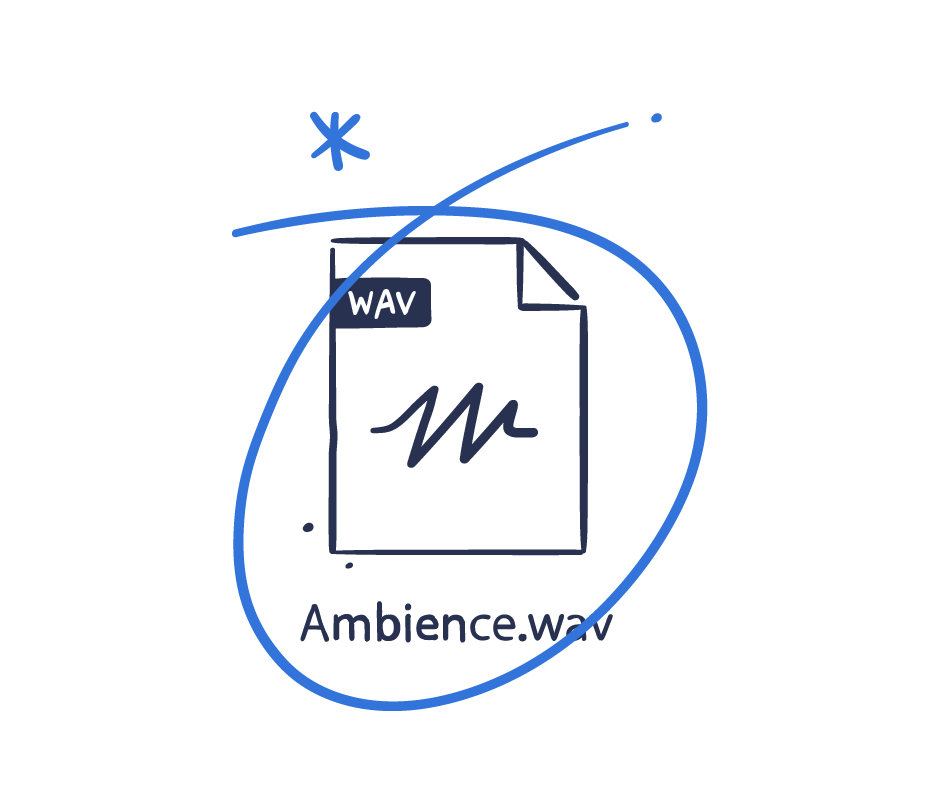
Read your script aloud
An effective way to test your explainer video script is to read it aloud and record yourself. Listen back critically to evaluate what works and what doesn’t. This helps you identify if the script flows well and if the language sounds natural when spoken. Adjust until it sounds right.

Write the first draft without editing
Writing the first draft of your script in one go is a great way to get started and unleash your creativity. Don’t worry about making it perfect – this is just about getting your ideas down on paper. Write down everything that comes to mind, without filtering. Once you’ve completed your first draft, you can sort through your ideas and decide what to keep and what to leave out.

Avoid clichés
Visual clichés are images that have been overused to the extent that they have lost their intended meaning. Often, they appear to be vague and unfocused, and they lack the necessary clarity to effectively communicate your message. Examples of visual clichés include a light bulb, gears or a jigsaw piece. Avoid these tired clichés and opt instead for more distinctive and accurate visual representations.

Get to the point
In an age of dwindling attention spans, it’s preferable to get to the point quickly. Avoid lengthy introductions and unnecessary chatter. Your audience wants to know the key point right away. By jumping straight into the heart of your message, your viewers will understand what information you’re providing and will be more likely to stick around for the rest of your video.
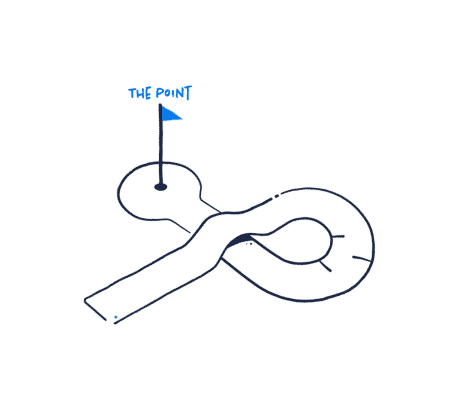
Don’t design for designers – design for people
Some designers tend to create designs that other designers will appreciate and applaud or they design with their own taste and preferences in mind. This approach risks your design being exclusive, disliked or misunderstood. Target your design towards your main audience, who are most likely non-designers. Forget about your designer friends and focus on understanding what works and appeals to your audience.
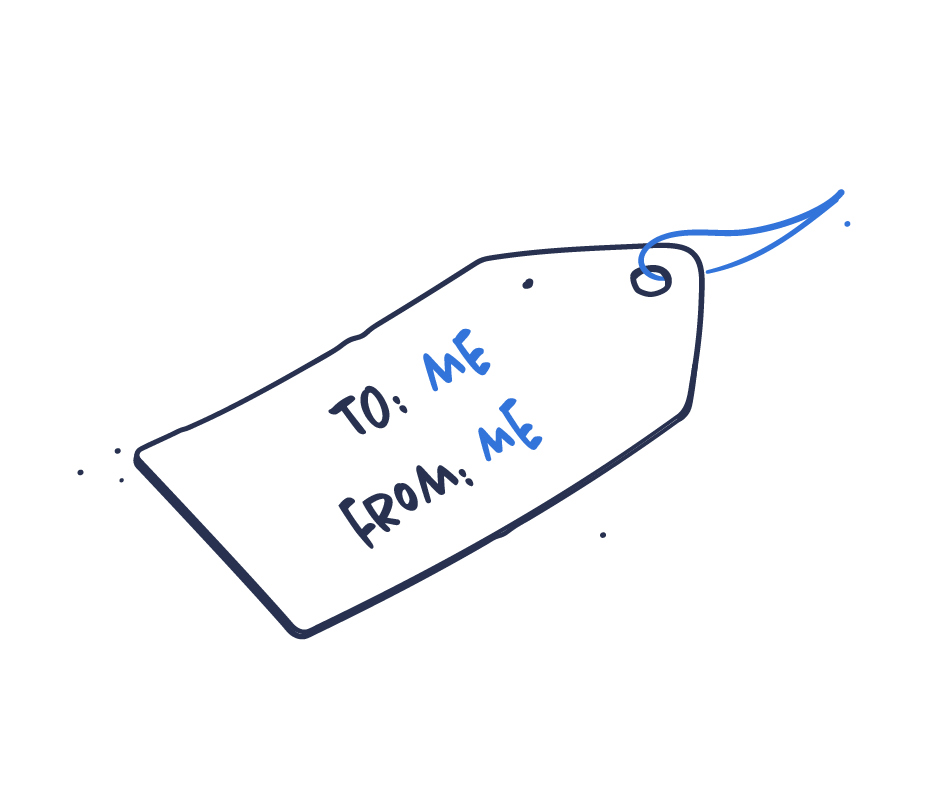
Use humour (in moderation)
Humour is a powerful tool to engage your audience, but it needs to be used wisely. Too much wit can detract from the message you are trying to convey and undermine your credibility. However, a well-placed joke or clever quip can make your audience react emotionally, listen more closely, and remember your content long after they’ve watched your animation.

Should work with and without sound
85% of social media videos are watched muted. Social media platforms autoplay without sound, and users frequently scroll in public, during commutes, or in other situations where they may not want or be able to listen to audio. Does that mean good sound design is wasted? Most certainly not. However, relying solely on audio would exclude a significant portion of the audience. Designing videos that are effective both with and without sound ensures the content is accessible, engaging, and maximizes its reach on social media platforms.
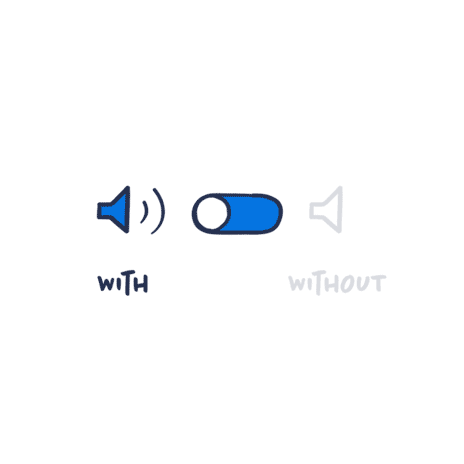
Exaggerate movements
Traditional animation tends to focus on achieving natural and believable movement. However, when it comes to short explainer videos that are packed with information, exaggeration becomes a valuable tool to enhance comprehension. Subtle actions might easily go unnoticed by the audience. Therefore, when you want to emphasise a particular element, consider pushing the boundaries of realistic movement. Instead, focus on movements that convey the intended message effectively.

Start with a title
While it’s tempting to dive right into the script writing, creating a strong working title from the start will keep your script focused. Your title should convey the main message of your video in a single headline. Keep in mind that your title may change during the writing process, but having a good one from the start will ensure you stay on track and remain true to your message while writing.

Get the brief right
The brief is the foundation for any successful animation project. It’s the roadmap that will guide us through the creative process, ensuring we stay on track. By clearly defining the purpose, target audience, and publishing platform of the project, we’re able to make
informed design decisions and create effective visual communication. Don’t let an inadequate brief hold you back – invest the time to get it right; we promise it’ll be worth it.

Cut the ukulele
The ukulele has somehow become strongly associated with generic, lighthearted stock music used for contemporary video production. Although stock music can be a very good and cost-friendly solution for explainer videos, it often risks sounding generic and may not align with the emotional tone and narrative of your animation.
When using stock music, accept that music research takes time and effort. You need a systematic process for browsing music libraries and testing multiple soundtracks to get it right. Go beyond the top 10 tracks and the usual suspects – and, please, no ukuleles!

Start by sketching fast and ugly
Follow your instincts to jot your rough ideas down on paper. See if it works; if not, try something else. You don’t have to have everything figured out just yet. Sketching fast and ugly is the most efficient way to identify your core visual concept for the video, as you can
quickly explore various visual concepts and decide on the most effective one for your explainer video.

Share the benefits, not the features
Rather than caring about the technical specifications themselves, your audience simply wants to know how your offering can improve their lives. So, instead of listing technical details, highlight the ways in which your product or service can solve a problem or make their lives easier. Replace “100GB of storage” with “Plenty of space to safely store your family photos.”
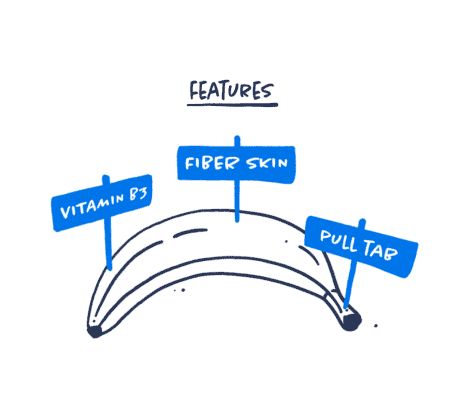
Use pauses effectively
Often underestimated, pauses in sound design wield significant power, enhancing audio-visual experiences by building suspense, creating contrast, emphasizing key moments or allowing for a moment of reflection. A sudden silence can evoke unease, while strategic removal of sound draws focus to crucial details. Silence, therefore, is not an absence, but a deliberate tool for impactful sound design.

Trim, trim, trim
An effective explainer video is short, concise and rarely over two minutes long. Although it’s difficult to do, when making an explainer video you need to trim your content so that only the essential information is left, and anything redundant is removed. Keep asking yourself: Is it essential to the story? If not, leave it out. A perfectly trimmed story will be concise, convincing and so much more powerful.
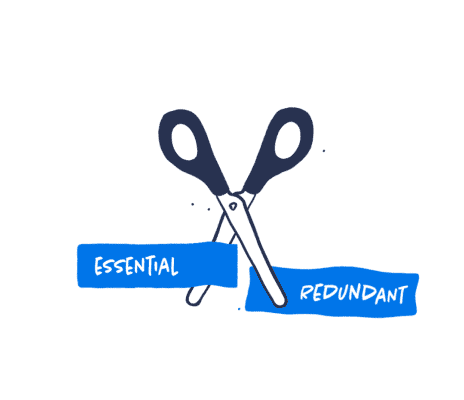
Limit scene changes
It can be tempting to pack in as many different scenes and visuals as possible into a video to make the message come across. However, too many scene changes can actually have the opposite effect and overwhelm the viewer. An animation shouldn’t feel like a slideshow, abruptly flicking from one scene to the next. Limit the number of scene changes and focus on creating a clear and cohesive storyline with a more natural flow.

Write the way you talk
Write in a conversational tone that mimics everyday speech. Avoid using complex words; instead, opt for simple, common language. You want your script to be friendly. Write the way you would talk to your friends. Additionally, using conjunctions can help the text to flow more smoothly and sound more natural when spoken aloud.

Story is paramount
You can’t turn a poor story into a great explainer video. No matter how hard you try to add cool, magical and brilliant design, it’ll still be a weak story wearing fancy cosmetics. Even the best design simply can’t rescue failed content. Instead, prioritise your story and ensure it’s compelling and engaging. With a great story as your foundation, you’ll be able to create a video that resonates with your audience.

Always define your goal
It’s easy to get excited about creating an explainer video but, before you dive in, take some time to define your end goal. What do you want to achieve with this project? Your goal should guide every aspect of the video – from the information you include and the story you tell, to the style and length of the final product. Without a clear goal, your project will lack direction and is less likely to achieve the desired results.
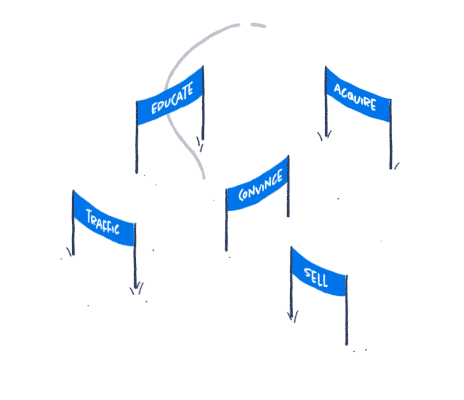
Make your design stand out
In today’s saturated online landscape, your video will be competing against thousands of others to gain attention. If it’s anonymous or generic, it’s sure to fail. Make sure that your design is remarkable and eye-catching. Your visuals need to make a powerful impression in order to stand out, be memorable and have an impact.

Speaking is acting
Voiceover requires the same dedication to character, emotion, and storytelling as traditional acting.
The speaker must interpret the script to deliver the lines with the appropriate meaning and emphasis, and must be able to convey a range of emotions through their voice. This could be joy, sadness, anger, excitement, or any other feeling required by the script.
The ultimate goal of the voiceover is to create a believable and engaging experience that matches your story.

Make it short and snappy
Your audience is most likely to come across your video online, in the realm of short attention spans. Keep your story short to keep your audience hooked. Only include essential elements and avoid giving lengthy explanations or complicated backstories. If you have more to say, then link to a page with more information.

Prioritise wisely yours efforts
Animation is not only very time-consuming but also expensive. Therefore, every project forces you to use good judgement when it comes to deciding where to concentrate your efforts. How important is each individual action to the overall story? How much time will each part take? The best approach is to allocate most of your time to the most important aspects.
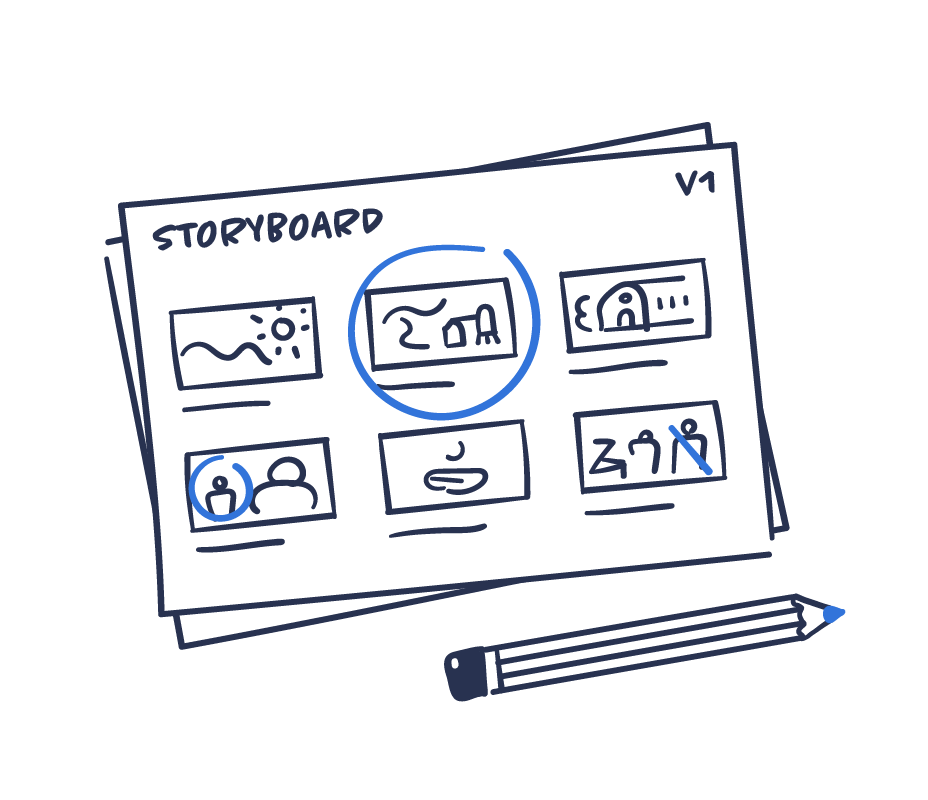
Get feedback
Don’t rely solely on your own judgement; ask others for feedback. Getting input from someone who is not familiar with the subject can help you identify any areas that may be unclear or confusing. Embrace feedback as an opportunity to improve your script and make your video more effective.
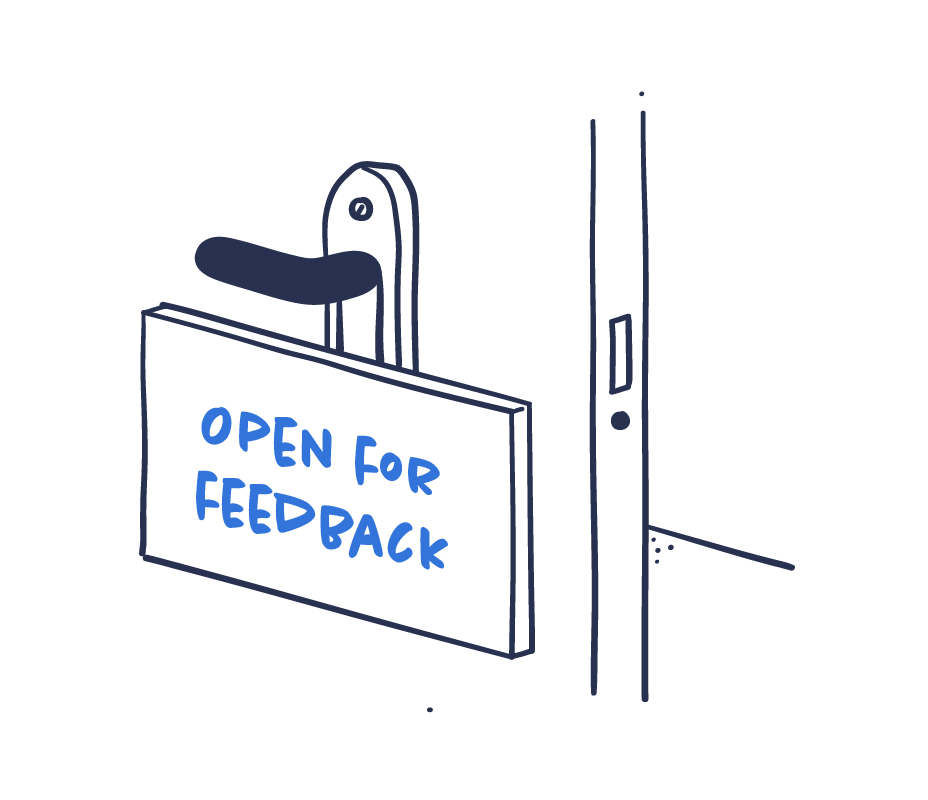
Explain the problem
When creating an explainer video for a product or service, it’s important to first explain the problem it solves. By explaining the problem right away, viewers will quickly learn that your message is relevant to them and worth their attention. You can then present your solution in a much more compelling way.

Inject emotion
Whether it’s making them laugh or pulling on their heartstrings, an emotional response keeps your audience hooked. The key is to tell a good story using your tone, language, anecdotes, or any other storytelling devices that incorporate emotion. Remember, your goal is to create a connection with your audience that they will remember long after the video has ended.

Don’t force a fixed linear process
Allow the process to be fluid, to go back and forth between the different stages and components of an animation process. Ideally all components (design, voice over, sound, animation etc) should not just support each other but be tailor made for each other. When you implement something at a later stage you might have to go back and forth several times to ensure all elements work together.
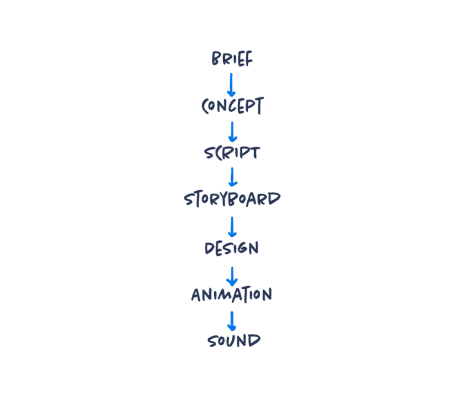
Explain like I am five
Explaining complex ideas can be challenging. However, simplifying the content as if explaining it to a five-year-old is an effective approach. This forces you to strip away jargon, technical terms, and overly complicated sentence structures. Instead, use basic, straightforward terms and relatable analogies or examples to illustrate the concept.

Stay on brand
Make sure that the script is in line with your brand image. The language you use is just as much a part of your identity as the design, colours, music and so on. Everything needs to give a consistent message. The tone of voice in the script will also be affected by the content, the context and the audience, but it should never conflict with your brand identity. If you’re a fun brand, keep the tone light and use a bit of humour. If your brand is more serious, keep it professional.
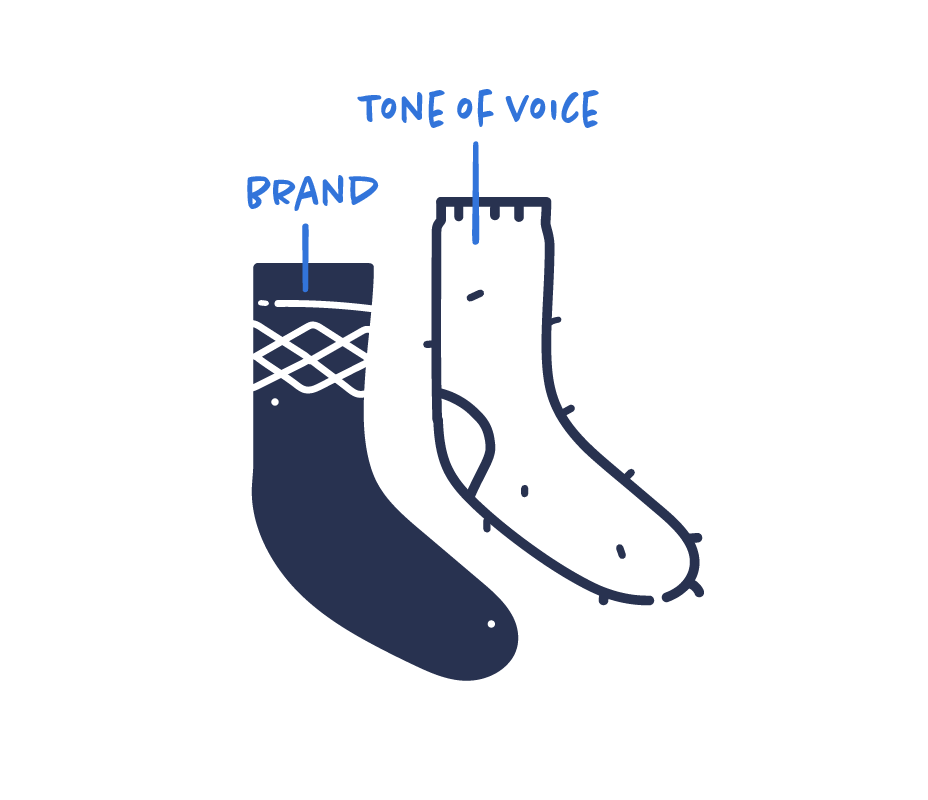
Dial down the transitions
While transitions and visual animation effects can be visually pleasing as well as adding to the experience of an animation, excessive use can easily overshadow the actual content. Instead, invest more time and effort in developing visual ideas for the actual story rather than crazy, fun or impressive effects that don’t really contribute to the story.
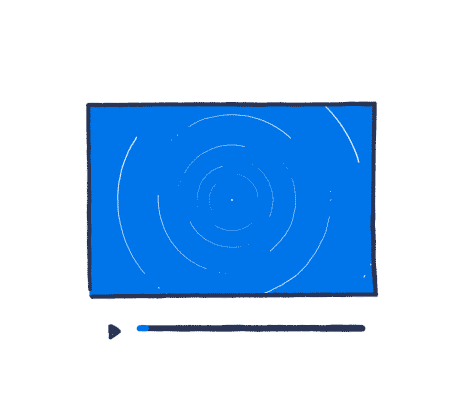
Little effort, big impact
Sound design is capable of creating a profound impact with minimal input, making it an essential element for any animation seeking to truly resonate. While truly great sound design can be time-consuming, even a small investment of effort, especially when working on a budget, can yield a massive return in viewer engagement. It’s the audio layer that transforms a visual sequence into a fully immersive experience, as sound design breathes life into static images, adding emotional depth, establishing atmosphere, and guiding the audience’s focus.
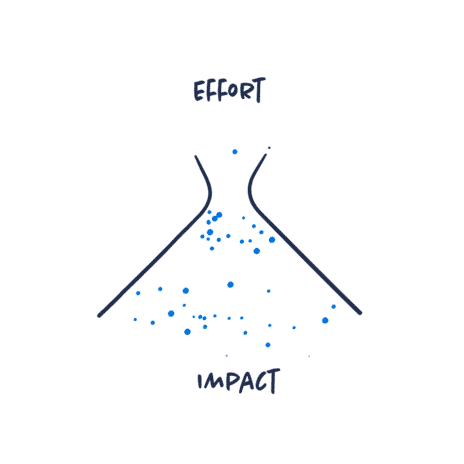
Not too abstract; not too realistic
Illustrations and visuals for explainer videos can often be too complex to convey a message concisely. On the other hand, they can also be too simple and abstract to understand. Cristoph Niemann introduced The Abstract-O-Meter scale to demonstrate the perfect balance of realism that illustrations need to contain in order to be effectively understood.
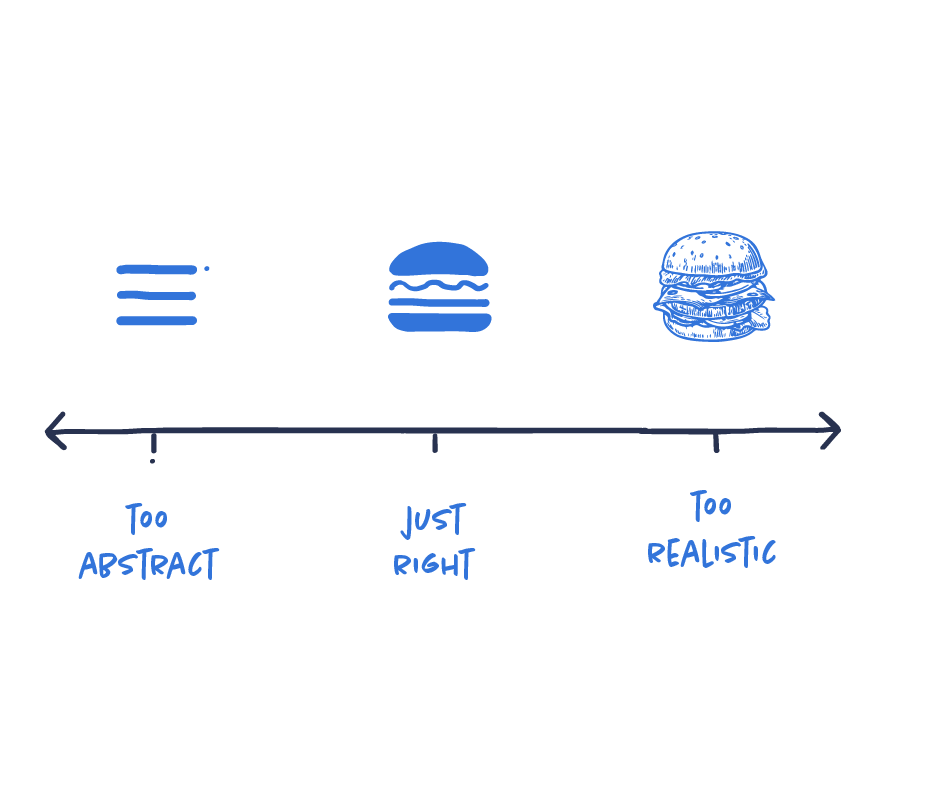
Use short and simple sentences
Even though your story might be technical and complex, in a script, short, simple sentences work best. Avoid complicated phrasing and keep your sentences concise. This helps the audience understand your point more easily. Simple sentences also leave room for the visuals to have a greater impact.
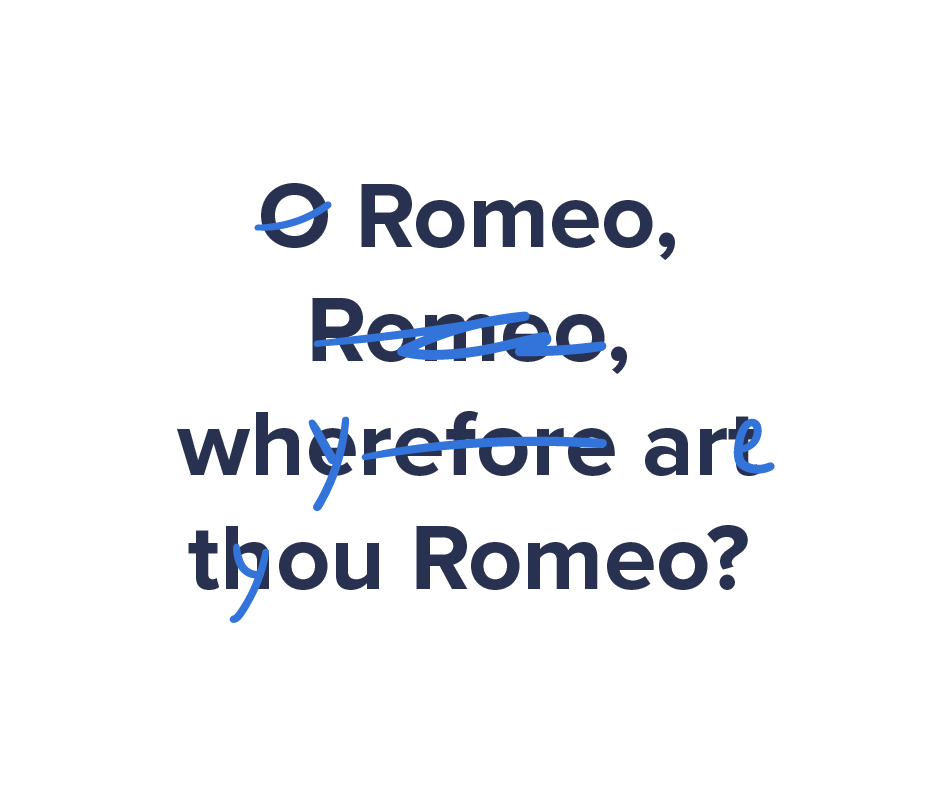
Don’t make your audience read and listen at the same time
You can use both voice-over or on-screen text, but not both simultaneously unless the wording is identical and the timing well-planned. To prevent overwhelming your audience, incorporate pauses into your voice-over if your video has on-screen text that is not in the voice-over.
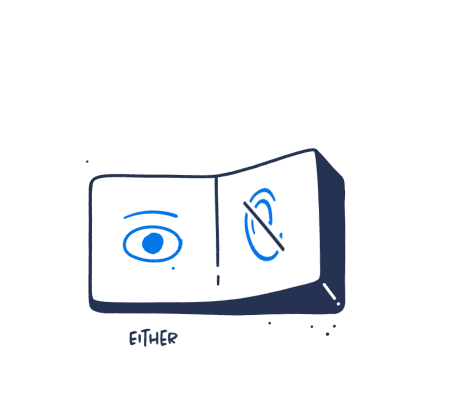
Use sounds layers to create depth
Combining multiple sound effects and ambient sounds creates a rich and immersive soundscape.
By carefully balancing the volume of different sound elements, animators can prioritize certain sounds and guide the audience’s attention.
Establish an audio hierarchy by prioritizing key sounds and voices in your video. Ensure that the most important audio elements are clear and prominent, while background sounds enhance the overall atmosphere.
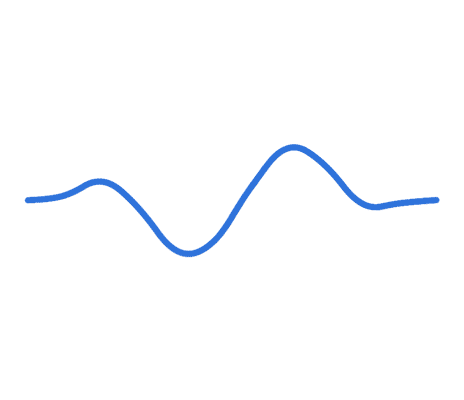
Match the tone of the video
The tone of the voiceover should align with your brand, your audience, and the message you’re trying to convey. A serious message requires a serious tone, while a lighthearted message calls for a playful voice. That’s why casting the right voice artist is important: the pacing and energy must complement the narration. The voiceover should seamlessly integrate with the visuals, music, and sound effects to create a cohesive and immersive viewing experience.
When working with multilingual versions, one should maintain a consistent tone while adapting to the local language and cultural differences.
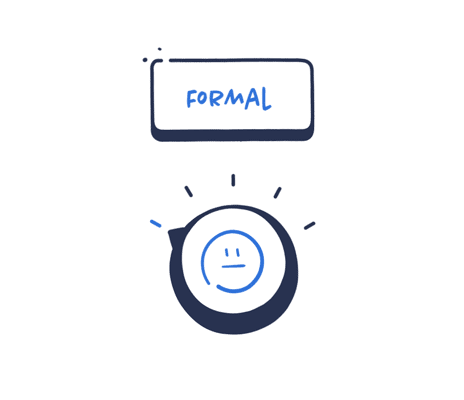
Get into the flow
A big challenge in the animation phase is to get the right flow, in terms of pace, timing, rhythm and pauses. It is instantly obvious when the flow does not work. When this happens, the end result can feel stressful, abrupt, tiresome or unsatisfying in some way. To ensure
you get the right flow, check that the voice-over, music, sound effects, and actions are all in sync, like a beautifully composed piece of music in which all of the instruments complement each other perfectly. When the flow is right, everything should feel fluid, natural, and effortless.
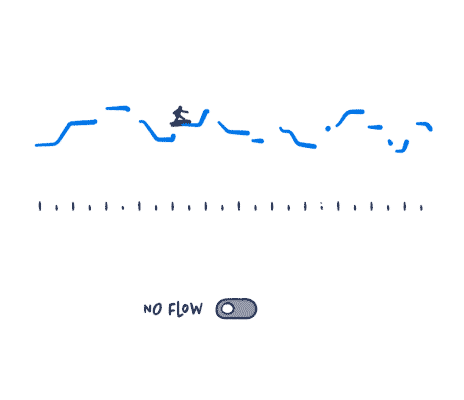
Give a clear call to action
Whether you want your audience to learn more, submit information, subscribe, or visit your website, make sure to clearly communicate what you want them to do. A call to action is essential in turning your viewers into customers or supporters. Make it compelling by highlighting what they will gain from taking this next step.
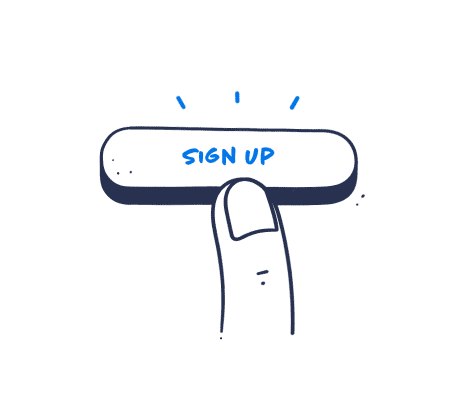
No such thing as neutral music
The concept of ‘neutral’ music in video production is inherently problematic because music, by its very nature, carries emotional and contextual weight. Music communicates, evokes emotions, and sets the mood — just like choosing different clothes. It cannot be a blank canvas. Therefore, determine what you want to achieve with the music and use music that matches the mood, expression, and style of your other assets to complement and enhance your animations.
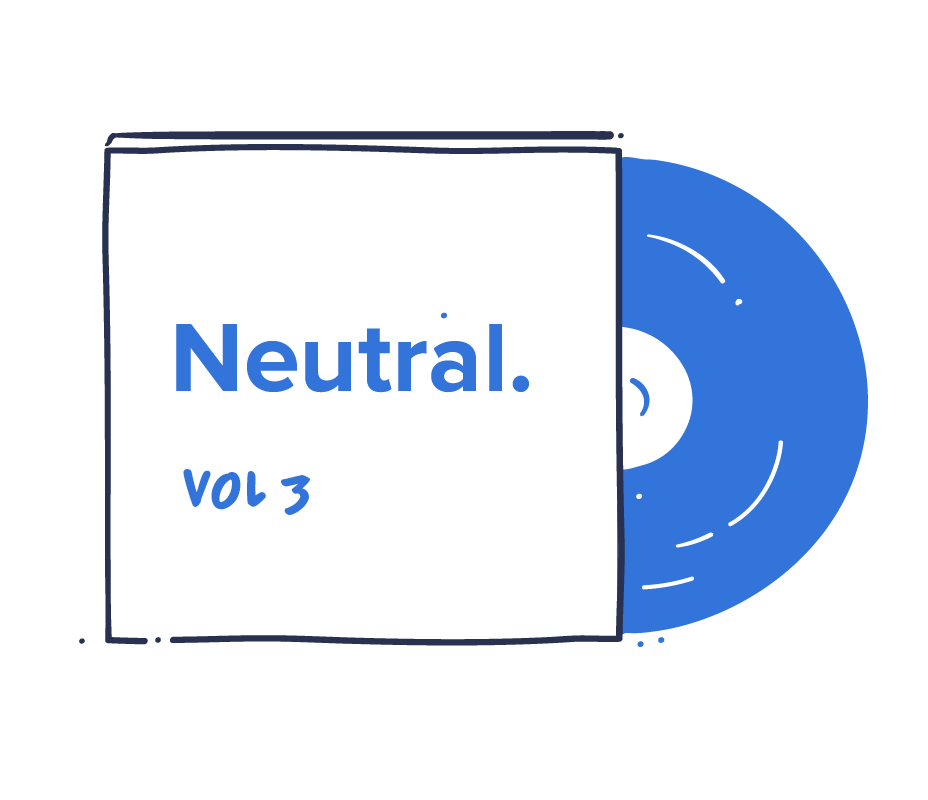
Virality can’t be planned
You can’t just make a ‘viral video’. Your video might go viral, but it’s almost impossible to plan. You might be able to produce content that is more likely to go viral or plan a strategy that makes it more likely. But it is naive to think that we are in control of virality. Stop focusing on virality and start making great and inspiring content that matters.
